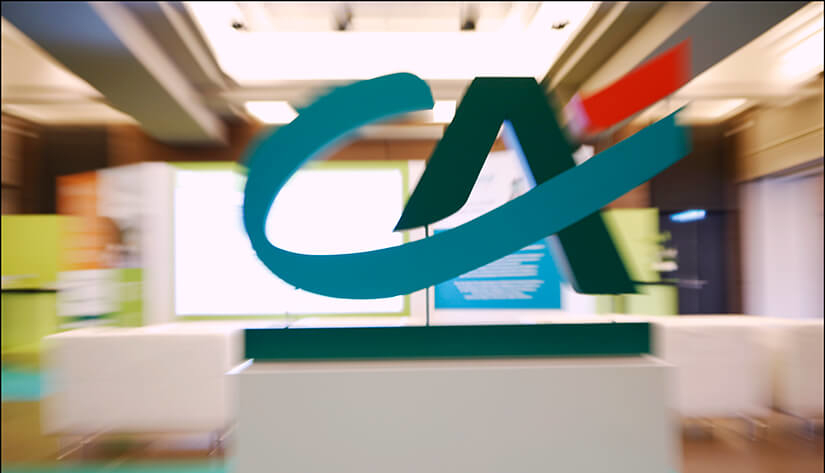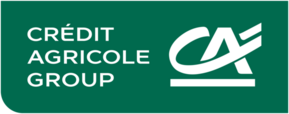-
View article
 #Group channel
#Group channelCrédit Agricole presents its results for the fourth quarter and full year 2025
2026/02/04
Culture, compliance and ethics
|
|
|
The purpose of the Compliance function is to ensure that the Group's entities, executives and employees comply with applicable banking and financial regulations and codes of ethics. Specifically, Compliance makes sure that no Group entity is exposed to compliance risk.
It is worth remembering that compliance risk is defined as the risk of legal, administrative or disciplinary penalties, material financial loss or reputational harm arising from non-compliance with banking and financial laws regulations, professional standards or codes of ethics, or with instructions issued by the executive body. In addition to these duties, Compliance:
- offers an opportunity to convey a positive image of responsible and customer-focused entities;
- helps to preserve the relationship of trust between the bank and its stakeholders (customers, employees, investors, regulators, suppliers and companies).
The Crédit Agricole Group Compliance Department defines and implements Group policy on preventing compliance risks such as anti-money laundering risk, terrorism financing risk, embargo violation risk, market abuse risk, conflict of interest risk, data protection risk and the risk of poor advice. All these measures help to reduce reputational risk.
The Crédit Agricole Group has thus opted for an internal system of reference texts that, in conjunction with legal and regulatory requirements, are based on three prescriptive elements, namely:
- the Group Ethics Charter;
- the Codes of Conduct of each entity, which set out the principles of the Ethics Charter;
- the FIDES Corpus; Group regulations that apply to all entities in addition to the specific technical standards of each business line.
Group Ethics Charter
Since 2003, the Crédit Agricole Group has had a nine-point Ethics Charter translated into eight languages. In 2016, the Group decided to update this Charter to bring it into line with our current values and growth plan. The new Ethics Charter aims to raise awareness of the rules that should be complied with and foster a culture of compliance. The Charter is the basis of the ethical and professional conduct the Group needs to uphold, which is why each Group entity is tasked with implementing the Charter during 2017 and adapting it to its own particular circumstances. It may be accompanied by specific charters on topics such as responsible purchasing and personal data protection.
The components of the Ethics Charter are as follows:
- Confirmation of the Group’s values;
- Indication of the Group's commitments: to be a fair, universal, multi-channel bank that offers long-term individual support to its customers;
- Implementation of principles: behaving ethically in dealings with customers, society and employees.
The Charter is a reference document setting out principles on the actions and behaviour that should be adhered to in our daily business with clients, employees, suppliers, society and all the stakeholders. All the other charters, codes of conduct and internal rules at all the Group's entities and businesses will be implemented or adjusted on the basis of this document.
The content of the Charter is presented in these four videos
Codes of Conduct of Group entities
The Ethics Charter is implemented across the Group via a Code of Conduct applicable to each entity.
These Codes of Conduct are applied within all Group entities as part of compliance risk control. This forms part of our commitment to act ethically vis-à-via all Group stakeholders.
The corporate entity Crédit Agricole S.A. has thus adopted a General Code of Conduct that incorporates, inter alia, a specific anti-corruption component pursuant to its obligations under Sapin II on the prevention of corruption and influence peddling.
To view the Crédit Agricole S.A. Code of Conduct, click here.
FIDES Corpus
This is a body of procedural memos that (i) identify the rules governing the Group's entities, executives and employees and (ii) transpose changes in compliance regulations.
Each Group entity, including those in countries with less stringent regulations, is tasked with adapting this body of rules to its own organisation in accordance with applicable regulations.
Training and informing employees about preventing risk
The Compliance Division of Crédit Agricole S.A. has created training and awareness-raising modules for its employees based on the general principles and adapted to the Group’s primary businesses. Fourteen broad compliance topics (e.g. financial security, the duty of advice, conflicts of interest) are contained in one single document. Available in nine different languages, this document helps to communicate with employees.
In 2016, almost all the new Compliance intranet, which is available to all employees with a Group intranet account, was enriched with bilingual content, presenting the main compliance topics, business lines and missions in an informative manner.
Work on the Group's training setup began in 2016. This system will be available to all employees, regardless of their exposure. It will consist of six e-learning modules on the following topics: AML/CFT, international sanctions, external fraud risks, customer protection, anti-corruption and the Compliance culture.
Crédit Agricole S.A will run parallel business training courses for exposed employees.


